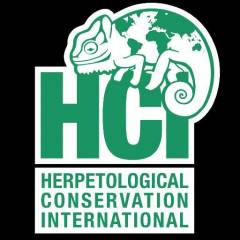Hay As A Part of a Grassland Tortoise's Diet
If you liked this article, then LIKE this article here!
Hay As A Part of a Grassland Tortoise's Diet
Grassland tortoises (such as the Sulcata, Russian, Hermann's, or Leopard Tortoises) benefit greatly from a diet that contains a significant amount of foraging material such as hay. Hay is an ideal component of grassland tortoise nutrition due to its similarity to commonly found forage material in the tortoises' natural habitat. It is recommended to feed most grassland tortoises a diet high in fiber and full of nutrient-rich grasses and hays with a smaller portion of dark, leafy greens and vegetables added in for variety. Some respected tortoise keepers recommend a diet for grassland species that contains up to 85% high-fiber foraging feed such as alfalfa hay, grass hay, and various other grasses, with only a small portion of the diet being fresh produce commonly found at the grocery store. With this in mind, it is important to understand the differences between the various types of hay available and to provide an appropriate mix of hays and fresh greens for your tortoise.
The most commonly available and popular type of hay is alfalfa. Alfalfa hay comes in many forms and is one of the few types of hay grown in nearly every state in the United States. Alfalfa hay is highly digestible and high in protein, energy, vitamins, and minerals. It also usually contains more cell solubles, less cellulose, and is higher in protein and lower in fiber than grass hays. Because of its high protein and relatively low fiber content, it is best fed only in addition to other, higher fiber hays. Alfalfa can be preferred over other types of hay due to it being highly palatable, not only to tortoises but to nearly any other species it is fed to, including horses. However, feeding grassland tortoises a diet too high in protein can cause severe shell deformities. While alfalfa alone is unlikely to cause the sort of severe deformities seen when these tortoises eat dog food and other unsuitable food items, it is not enough on its own to contribute to healthy and normal growth.
Grass hays such as Brome, Orchard Grass, Timothy, and Bermuda hays have minute differences in nutrient content and trace minerals, but the main difference between grass hay and alfalfa hay is the protein and fiber content. Grass hays have been extremely popular among horse owners due to the lower amount of protein and energy, making it useful for the average, non-working horse. What does that mean for grassland tortoises? It means that grass hays mimic their natural diet the best, with relatively low nutrient content but lots of fiber. In the wild, tortoises spend much of their day foraging for food, eating consistently throughout the day. Including grass hays in the diet as a major portion mimic this constant foraging and provide the tortoises with enrichment in the form of something to do throughout the day. The high fiber available in grass hays helps promote healthy digestion and solid, normal stools indicative of overall health.
Oat hay is another type of hay, made from an oat crop not harvested for grain. Commonly, oat hay is used to complement other hays, as it is lacking the higher nutrient density of higher quality hays. It often is used as a part of the diet for overweight horses that do not need as high of a calorie intake as younger or working horses. Oat hay is also low in calcium and often high in nitrates, making it unsuitable in large quantities for tortoises. It is excellent in adding variety to the diet and great to line sleeping areas with, but should not be relied upon as a primary food source.
You can also grow fresh grass using seeds found at your local gardening center. Acceptable types of grasses include bermuda, clover, alfalfa, rye, rice, and sowthistle. Other fresh plants that can be grown for your tortoise to forage on include geraniums, violets, chard, grapes, nasturtium, and various herbs such as oregano, cilantro, and basil.
In conclusion, a variety of hays offered as a significant portion of a grassland tortoises' diet can be beneficial and even essential to keeping a healthy tortoise.

